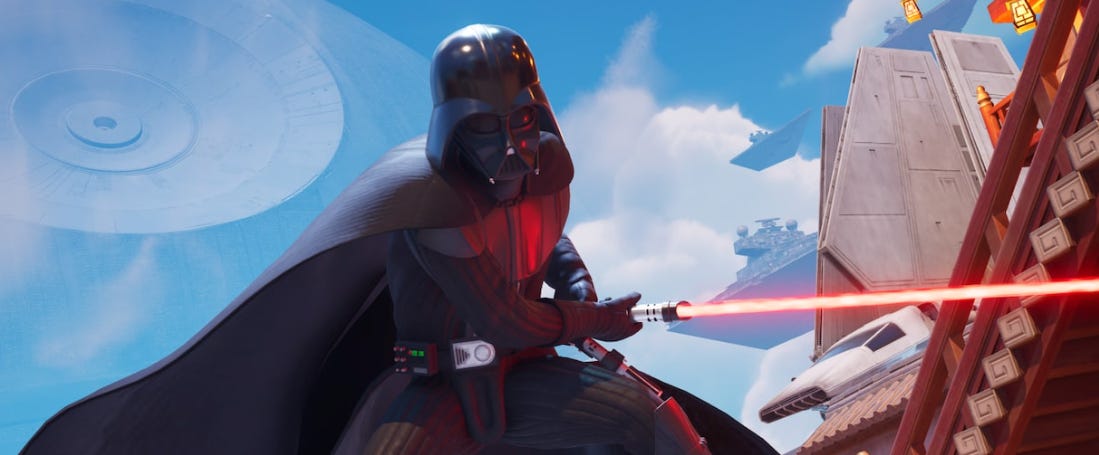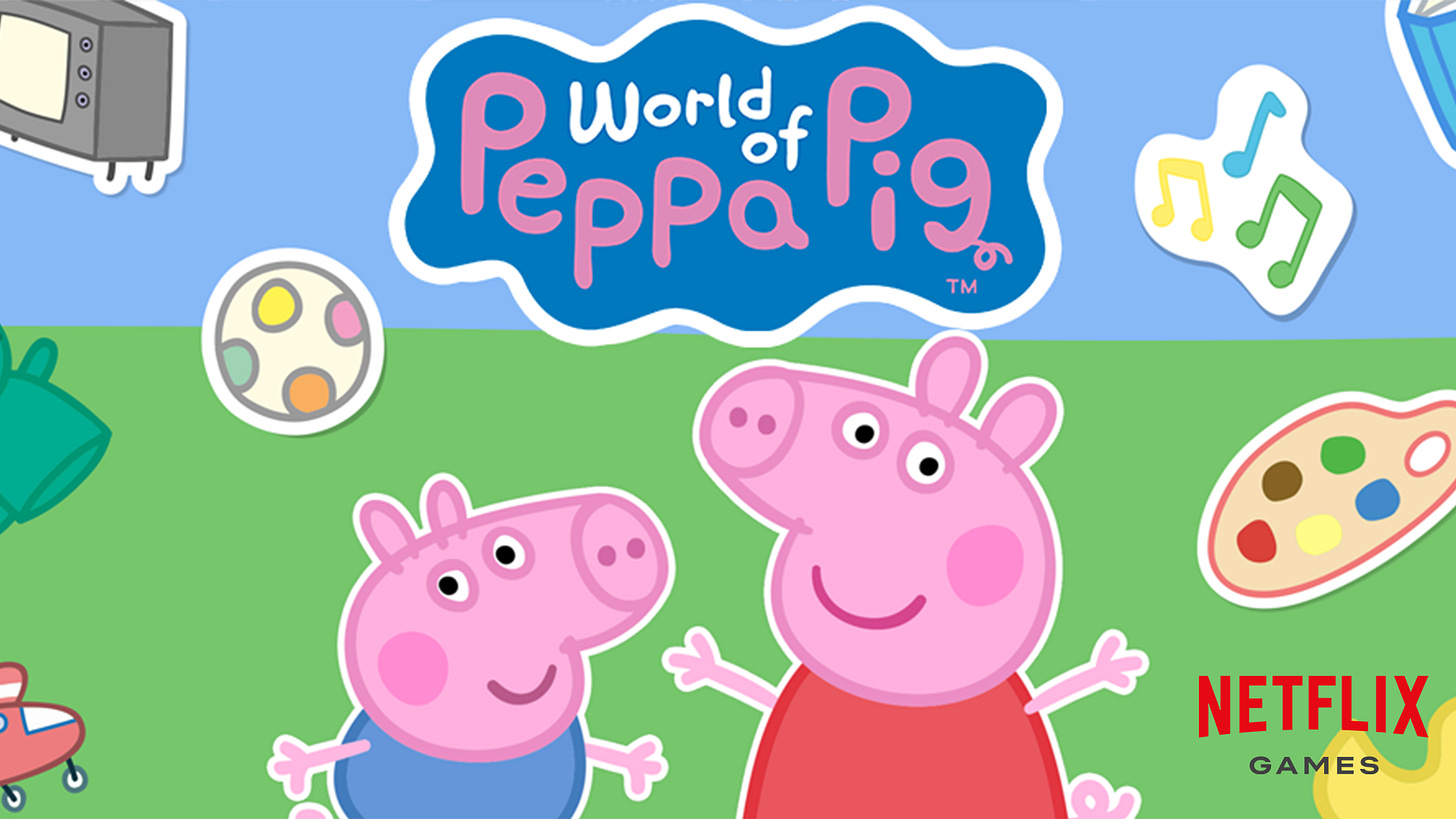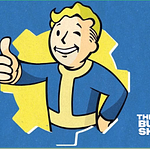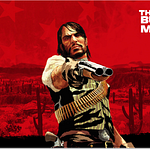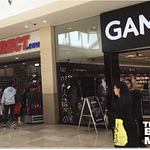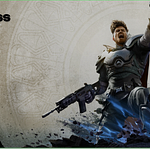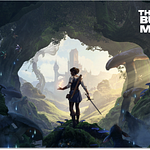Listen now on Apple, Spotify or YouTube
In This Edition
- Wizards on D&D and Magic
- AGBO talk The Electric State
- Netflix’s Peppa Pig partnership
- AI NPCs are a transmedia game changer
- Film, TV and games working side-by-side
I’m back from Summer Game Fest 2025 and, despite all the political unrest, I had a great time.
I was a little concerned going in. The number of traditional AAA companies demoing games to the press was slight. And the various showcases were lacking in major franchises.
It wasn’t entirely devoid of blockbusters. There was Resident Evil, and Call of Duty, and James Bond. And there was new Xbox hardware, too. But there was no EA, Take-Two, Ubisoft or Nintendo.
This afforded space for other games to step up, and in an era where an independent AA new IP can (and often do) outperform AAA sequels, that can be quite the opportunity. The journalists were all buzzing about Mixtape and Pragmata and Out of Words (and sure, Resident Evil, too).
Also, Microsoft’s decision not to show Fable or Perfect Dark or Gears of War or Elder Scrolls, meant that The Outer Worlds 2, Grounded 2, Keeper and Clockwork Revolution took center stage during its showcase.
It might have made for a quieter Summer Game Fest this year, but it felt like a more varied and interesting event this time around.
Anyway, outside of all the games, there was also a little business event that took place during SGF called The Game Business Live. We did that. Every session was recorded, and we’re releasing our first one today. It’s features Netflix, Wizards of the Coast and AGBO. You can watch the full conversation above, or alternatively read my edited highlights below.
Enjoy!
AI will transform game tie-ins, but IP holders need to be “a little less precious”
Our big panel during The Game Business Live was on ‘Building Entertainment Universes Through Video Games’. The session featured John Hight, who is the president of D&D company Wizards of the Coast (he also leads gaming for Hasbro), Lisa Burgess, who is general manager for kids at Netflix Games, and Pete Wanat, who is in charge of games at AGBO, the production company owned by Marvel directors Joe and Anthony Russo.
And one of the big conversations was around AI enabling gamers to experience established worlds and stories in their own way.
“We're on the threshold of something really incredible in terms of the evolution of games,” Hight said on stage. “Linear media does a great job of guiding us through an emotional journey. But imagine the power of being able to walk into Lord of the Rings or Star Wars and be in those worlds, and having your interaction with a non-playing character be substantially different than mine, and that both of our interactions will affect how that NPC behaves when someone else enters that world.
“This is one thing that AI will likely unlock for us. We can now adjust games for players' behaviors. I am going to dis this person and I'm going to like that person. Being able to define your own narrative is a really interesting spot for writers and directors. How do you allow for all this? Are you writing strict dialogue that's going to be spoken at this moment, or are you now creating deep characters where you’re setting the limits of what they would do in a given situation?”
Wanat continued: “I think what John's talking about is emergent gameplay. We think about it all the time. Some of the best stories that you're going to tell isn't necessarily the story that the writer wrote. Neil Young [former EA game designer] made a great Lord of the Rings game 20 years ago that put you right in the middle of the first scene, and it felt great then, but now we have to do that emergent gameplay element. The ability for us to find new ways of playing the same segment or the same area of the map. Because it's interactive, it punches back, it changes itself so that you can have those new and different experiences.”
This led to a conversation around Darth Vader’s inclusion in Fortnite, which was an AI-powered NPC that interacted with players and responded to what they were saying.
“We have to work out all of the issues around making sure that the original performers are rewarded and that they're on board with it,” Hight said. “It's a little weird to have Darth Vader say things that are completely out of character. But it's fun. And as long as the original creators are fine with that. Okay.”
“If you spent any time with Darth Vader, he was part of your squad. He talked to you. He narrated the story as you went through it. It wasn't about having him say an F-bomb that mattered.”
Wanat said a key element is for IP owners to accept a certain loss of control over proceedings, and to allow fans to play with the characters and worlds.
“We now live in a world where we have AI NPCs. And yes, you can spend the first few minutes trying to get them to say ‘f***. And that will happen. And then be like, oh my God, Darth Vader said ‘f***. But then you realize there's so much more to it. If you spent any time with Darth Vader, he was part of your squad. He talked to you. He narrated the story as you went through it. It wasn't about having him say an F-bomb that mattered. If you played it and he went in the squad, he would talk to you and call out your name, even if you were a Ninja Turtle. That stuff's really important. But in order for us to really get the most out of it, IP holders have to be a little less precious. Because if not you're never going come up with those ways that the game will surprise you.”
“I worked with Chris Meledandri [Illumination CEO] doing a lot of games with Minions. And Chris used to say all the time, find a way to surprise your audience. And AI can do that in ways that were unexpected and unanticipated. For a younger generation, for Gen Alpha, that's the expectation from them. They live in a meme culture. And they are so ready for everything that the only way to surprise them is to do things like use AI to make it really pop.”
Cross-media is even more powerful with kids
Lisa Burgess leads kids projects at Netflix Games. She oversaw the recent roll-out of the Peppa Pig video game, World of Peppa Pig, on the subscription service, which sits alongside episodes of the cartoon.
Netflix has been active in cross-media projects. In the last six months alone, it’s made tie-ins with Black Mirror, Squid Game and The Electric State. But Burgess said these cross-overs can be more powerful when it comes to children.
“When you're thinking about adults, and you have a TV series and a game, those might in fact be very different audiences,” Burgess said. “The person that watches the show and the person that wants to play the game could be different.
“Once you get into the kids space, it is very common for a child to be like, I watch Peppa. I want to play Peppa. I want to buy Peppa toys. I want to wear Peppa. It's the whole thing. Peppa is their best friend, right? And so that is actually a benefit that we have when you think about kids and the extension of IP across all of those areas.
“But you do also have to make sure that the game is fun. You cannot just throw an IP onto something that is not fun and think that it's going to be successful because kids are smart and they're capable of very complex gaming interactions.”
Unreal Engine is helping film, TV and games collaborate
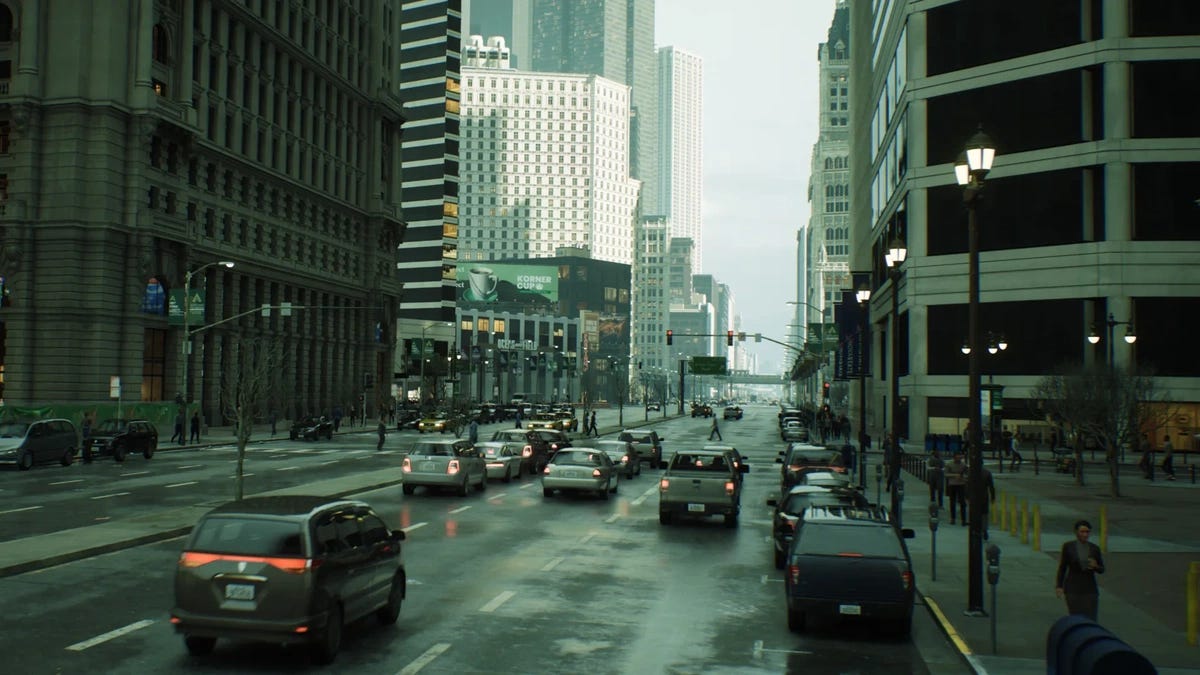
One topic of conversation during panel was around scheduling. The process of making a video game is vastly different to a TV show or film, and therefore trying to make these things land at the same time is a real challenge.
Wanat said that although this is often the ambition, it’s more important to have a good product than making sure things hit at the same time. “The goal is essentially to make sure that both things are of the highest quality possible,” he said.
Yet one thing that has made collaboration easier between TV, film and game production has been the fact that all three have started using similar technology, including the Unreal Engine.
“Thank God for partners like Epic with Unreal Engine,” he said. “How much Unreal do you see now in film and TV effects?
“At AGBO, we do a ton of previs In Unreal. So we can also take all the pre-vis that was made for the film and put it in the game, because it's all Unreal assets now. It's not just like a LEGO piece snapping into place, there does need to be some massaging, but it is much faster than it was even five or 10 years ago, when we used to get stills from the film, and here's your art bible. Now our art bible is in Unreal. It's still not going to be perfect on the timing slot at every turn, but it definitely makes it easier.”
Do check out our full panel above, where we discuss conflicts between TV/Film and games, the popularity of D&D, Magic: The Gathering’s collaboration with Final Fantasy, how AGBO approached The Electric State video game, and a whole lot more.
We’ll be back tomorrow with another recording from The Game Business Live.



